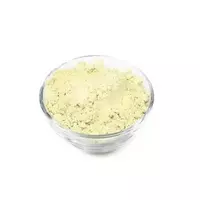Milk powder

As sometimes it is great to find in the absence of a regular liquid product in bags, milk powder, which is indispensable in some cases. It very often helps the hostesses and is easy to cook. White or cream soluble powder is made by drying normalized pasteurized milk of cows.
Usually, milk powder must be diluted in warm water and consumed as our usual drink. The nutritional qualities and beneficial properties of milk powder are almost identical to natural pasteurized cow's milk, so this product is widely used for culinary purposes. By the way, one of the advantages of dry powder is longer storage compared to conventional milk.
The beverage obtained by diluting milk powder with water is called reconstituted. Today, industrial manufacturers most often produce just such a product, so when buying milk, it is recommended to pay attention to the inscriptions on the packaging. Due to the fact that this is a concentrated product, the calorie content of milk powder is high and amounts to 46
9. 2 kcal per 100 grams of powder.
Types of milk powder
Currently, the range of this product is small - only three types of milk powder: whole, fat-free and instant. They differ in the percentage of some substances and the field of application.
Thus, whole milk powder is intended to feed the population, while a fat-free product is used mainly in the manufacture of confectionery products and for feeding animals. Instant milk powder is made from a mixture of whole and defatted product, which is then moistened with steam. As a result, lumps are formed, which are dried and packed.
Composition of milk powder
Milk powder contains about 35 percent of valuable proteins, vitamins, amino acids, and minerals. In addition, such a product has much less cholesterol and other elements that can provoke allergic reactions. That is why it is used in the production of dry baby food.
A large amount of calcium in the composition of milk powder contributes to the growth and strengthening of bone tissue. And potassium, which is also contained in this product, has the ability to ensure the full functioning of the organs of the cardiovascular system.
Benefits of milk powder
It is difficult to challenge the benefits of milk powder, for example, if only because this is a mandatory component of baby formula - substitutes for mother's milk.
The benefits of milk powder are also evidenced by the fact that the starting material for it is a healing and natural product - whole cow's milk. In addition, unlike the latter, the dry product does not need to be boiled, because it has already undergone thermal treatment.
Harm to milk powder
If you have lactose deficiency (poor absorption of dairy products), this product will definitely not bring any benefit. In addition, here we can even talk about the dangers of milk powder, since it can cause severe allergies.
milk powder 469.2 kCal
Energy value of milk powder (Ratio of proteins, fats, carbohydrates - ju):
Proteins: 24.2 g (~ 97 kCal)
Fats: 25g (~ 225kCal)
Carbohydrates: 39.3g (~ 157 kCal)
Energy ratio (bj | y): 21% | 48% | 34%
 Español
Español Français
Français Português
Português Русский
Русский 简体中文
简体中文 繁體中文
繁體中文 日本語
日本語 한국어
한국어 العربية
العربية Türkçe
Türkçe Қазақ
Қазақ Deutsch
Deutsch Italiano
Italiano Українська
Українська
